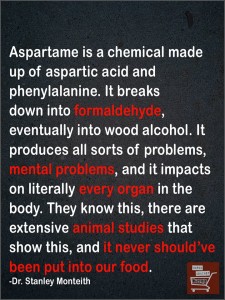The Dirty Truth About Dryer Sheets
Salad Suggestions
12 Tips 2 Try Tomorrow
Life Improvement Tips
Click on the image to see a larger version of it.
There just might be something in here targeted to where you need to look to get more out of your life. Look it over and pick three that you think will yield you the most gain and do them.
Health benefits of organic food, farming outlined in new report
A report prepared for the European Parliament, co-authored by Harvard Chan School’s Philippe Grandjean, adjunct professor of environmental health, outlines the health benefits of eating organic food and practicing organic agriculture.
https://www.hsph.harvard.edu/news/features/health-benefits-organic-food-farming-report/
Gut bacteria may accelerate Alzheimer’s disease
The bacteria in your gut may play a major role in the development of Alzheimer’s disease – the most common form of dementia, says a study that may initiate new ways for treatment and preventing the neurodegenerative disease.
The researchers found that mice suffering from Alzheimer’s have a different composition of intestinal bacteria compared to mice that are healthy.
Mice without bacteria had a significantly smaller amount of beta-amyloid plaque – lumps that form at the nerve fibers in cases of Alzheimer’s disease – in the brain.
“Our study is unique as it shows a direct causal link between gut bacteria and Alzheimer’s disease. It was striking that the mice which completely lacked bacteria developed much less plaque in the brain,” said Frida Fak Hallenius from the Lund University in Sweden.
Home Made Chocolate Gelato
You may recall a week or so back I reposted a recipe I saw online for some ice cream:
INGREDIENTS:
2 cups of walnuts
2 cups of water
1 cup of maple syrup or honey
2 dessert spoons of cacao powder
1 dessert spoon of vanilla extract (optional)
1/2 teaspoon of Himalayan or celtic sea salt (optional)
Well a week back I had a crack at it.
I forgot to add the water when I transcribed the recipe.
And we have a freezer full of very ripe bananas.
So two bananas went into the mix.
Made the first batch and Julie didn’t think it was anything special.
If anything a bit strong in the chocolate department.
Tried hazelnuts instead of walnuts in the next batch and halved the cacao.
Improvement but still no cigar.
I then used cashews, still with only one table spoon of cacao.
Better still.
Then I swapped out the honey and replaced it with maple syrup.
Pay dirt!
So I mixed all the batches together and froze it
Julie and I have been enjoying just a spoonful of it after dinner each night for the last week.
Tonight I gave some to Bronwyn and she loved it.
Wanted the recipe even.
So here’s the final recipe:
2 frozen bananas
2 cups of cashews
1 cup of maple syrup
1 rounded dessert spoon of cacao
1 dessert spoon of vanilla
1/3 teaspoon of Himalayan rock salt
It does not freeze hard, it stays fairly malleable.
Try adding the water to it like the original recipe suggests.
Take out of the freezer after two hours and reblending it to make it even smoother.
Enjoy!
The number-one mind-control program at US colleges
Here is a staggering statistic from the National Alliance on Mental Illness (NAMI): “More than 25 percent of college students have been diagnosed or treated by a professional for a mental health condition within the past year.”
Let that sink in. 25 percent.
Colleges are basically clinics. Psychiatric centers.
Colleges have been taken over. A soft coup has occurred, out of view.
https://jonrappoport.wordpress.com/2017/02/07/the-number-one-mind-control-program-at-us-colleges/
Baby Dies In Car Seat

Please bring this to the attention of parents of very young babies.
11-week-old Shepard Dodd died tragically after being put in his infant car seat. The death was an accident but it actually happens much more often than it should. Now, Shepard’s parents are determined to make sure this tragedy doesn’t happen to any other baby.
The little boy was in the home of his licensed daycare provider. At nap time, he was swaddled and placed in his car seat. Since Shepard had a runny nose and little congestion, the daycare provider thought he would sleep better in the upright position the car seat provided.
Since he wasn’t in a moving vehicle, the straps were left unbuckled and off of him. The baby fell asleep, and his head fell down in a chin-to-chest position, which closed his airways. Because he was so young, he didn’t have strength in his neck muscles to move his head, and he died of asphyxiation.
His parents are taking his story to the media to prevent other babies from this horrible death.
http://www.lovethispic.com/blog/10477/baby-died-minutes-after-daycare-worker-put-him-in-car-seat-for-a-nap.-i-had-no-idea-this-was-possible





